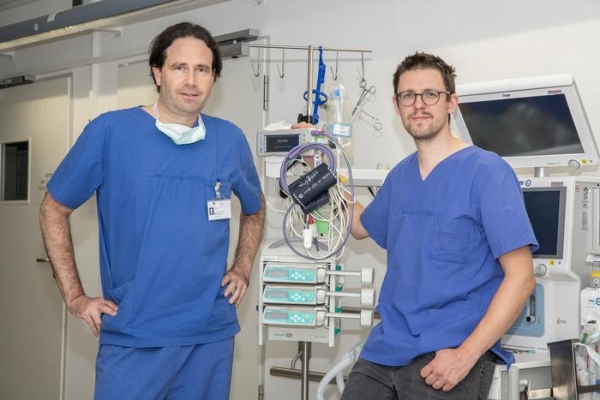Researchers from Bonn show which procedure reduces the amount of anesthetic discarded.
Propofol is used in the operating room to induce anesthesia. To maintain anesthesia, a continuous infusion of the agent via a separate syringe pump is the standard procedure for total intravenous anesthesia. However, this is not entirely sustainable: propofol produces about 45 percent of the drug waste in the operating room, and a quarter of the agent remains unused. Researchers at the University Hospital Bonn (UKB) and the University of Bonn have now shown that an alternative method reduces the amount of waste. Instead of a separate syringe for the induction and maintenance of anesthesia, the researchers were able to show that the use of a single syringe pump for the induction and maintenance of anesthesia is more sustainable: propofol waste could be reduced by between 30 and 50 percent. The study has now been published in the British Journal of Anaesthesia.
In times of climate change, hospitals also need to develop sustainable strategies for the protection of resources. Anesthesiology and intensive care medicine are among the most resource- and energy-intensive areas: they generate a significant proportion of hospital and medication waste, which must be disposed of properly. “Propofol is a leader in terms of medication waste,” explains Prof. Dr. Mark Coburn, Director of the Department of Anesthesiology and Operative Intensive Care Medicine (KAI) at the UKB, who also conducts research at the University of Bonn. The anesthetic is used to induce and maintain anesthesia. It is routinely injected in the operating room first with a syringe to induce anesthesia and, after the patient has fallen asleep, a continuous infusion often follows via a separate automatic syringe pump. The problem: “In some institutions, up to 45 percent of all medication waste in the operating room is propofol,” emphasizes Dr. Florian Windler, a KAI assistant physician at the UKB. In addition, a quarter of the anesthetic prepared remains unused or underused at the end of the operation and goes to waste.
Read more at Universitatsklinikum Bonn
Image: (from left) Prof. Dr. Mark Coburn and Dr. Florian Windler show which procedure reduces the waste of propofol. (Credit: University Hospital Bonn (UKB) / Rolf Müller)
Health Sci/Tech Top Stories
